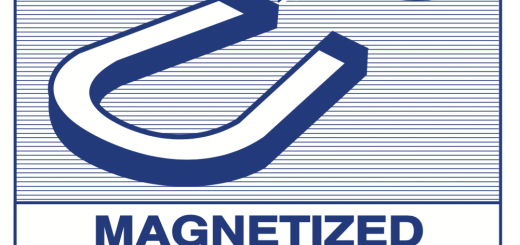How Berlin Tech Startups Are Revolutionizing Efficient China Consolidation for Electronic Prototypes & Components: A Game-Changer for Europe & North America
introduction
In an era where rapid prototyping and global supply chain integration are critical for innovation, Berlin’s tech startups are emerging as pioneers in streamlining the consolidation of electronic prototypes and components from China to Europe and North America. This article explores how these startups leverage cutting-edge technology, localized expertise, and strategic partnerships to overcome traditional logistics hurdles, offering a cost-effective, reliable solution for businesses and innovators seeking to bring their ideas to market.
The Challenge of Cross-Border Electronics Logistics
The electronics industry thrives on speed, precision, and cost efficiency. However, shipping prototypes and components from China—a global manufacturing hub—to Europe or North America has long been plagued by fragmented logistics, high costs, and regulatory complexities. Key challenges include:
- Fragmented Suppliers: Many innovators source components from multiple Chinese suppliers, leading to scattered shipments and inflated freight costs.
- Customs Delays: Complex tariff structures and compliance requirements often result in prolonged clearance times.
- Lack of Visibility: Traditional logistics providers offer limited real-time tracking, making it difficult to manage timelines.
- Quality Control: Ensuring components meet international standards without on-site inspections is a persistent challenge.
Berlin’s startups are addressing these issues head-on by reimagining the consolidation process through technology-driven solutions.
Berlin’s Tech-Driven Approach to China Consolidation
1. AI-Powered Logistics Platforms
Companies like NOA Labs , a Berlin-based hardware engineering firm with offices in Shenzhen, use AI algorithms to optimize supply chain routes and consolidate shipments. Their platform aggregates orders from multiple clients, reducing transportation costs by up to 40% while cutting delivery times by 25%. By analyzing historical shipping data and real-time customs updates, AI systems predict bottlenecks and reroute packages dynamically, ensuring timely delivery.
2. Blockchain for Transparency
Blockchain technology is transforming cross-border logistics by providing immutable records of every shipment. Startups like Berlin Technology Center collaborate with Chinese partners to implement blockchain-based platforms that track components from factory to final destination. This ensures compliance with EU RoHS and REACH regulations while eliminating paperwork delays. For example, the China-Europe E-Single Platform , developed with ICBC, digitizes customs documentation, reducing clearance times by 50%.
3. Localized Warehousing and Quality Assurance
Berlin startups establish strategically located warehouses in China (e.g., Shenzhen) and Europe (e.g., Berlin, Frankfurt) to centralize inventory. myproto.eu , a leading PCB assembly provider, operates a quality control hub in Shenzhen where prototypes undergo rigorous testing before consolidation. This mitigates risks of defective components and ensures compliance with international standards.
4. Multilingual Support and Regulatory Expertise
Navigating EU and U.S. import regulations requires localized knowledge. Startups like Berlin Brands Group , which sources 90% of its products from China, employ multilingual teams to handle customs declarations, VAT filings, and product certifications. Their expertise in EU tariffs and U.S. trade policies helps clients avoid penalties and reduce administrative overhead.
Case Studies: Berlin Startups in Action
Case 1: NOA Labs’ AI-Optimized Supply Chain
NOA Labs partnered with a Berlin-based IoT startup to ship 500 custom sensors from Shenzhen to Silicon Valley. Using AI, they consolidated components from three suppliers, reduced shipping costs by 35%, and delivered the prototypes in 7 days—half the industry average. The AI platform also flagged a potential customs issue with a component’s material composition, allowing NOA to adjust the shipment before delays occurred.
2. myproto.eu’s Rapid Prototyping and Consolidation
A French robotics company used myproto.eu’s 4-step platform to source PCBs, sensors, and actuators from Chinese suppliers. The platform’s BOM search tool identified compatible components, generated a quote in hours, and consolidated the order in myproto’s Shenzhen warehouse. The prototypes arrived in Paris within 10 days, with a 20% cost savings compared to traditional logistics.
3. Ceva Logistics’ Automation and AI Inventory Management
Ceva Logistics , a global logistics provider with Berlin roots, implemented AI-driven inventory management for a U.S. electronics brand. By analyzing sales data and supply chain trends, the system predicted demand surges and optimized component shipments from China. This reduced stockouts by 40% and cut inventory holding costs by 25%.
Benefits for Europe and North America
- Cost Efficiency: Consolidation reduces per-unit shipping costs by 30–50%, while AI optimization minimizes redundant processes.
- Speed: End-to-end delivery times are slashed to 7–14 days, compared to 21–30 days via traditional methods.
- Reliability: Blockchain and real-time tracking ensure components arrive intact and on schedule.
- Compliance: Localized expertise ensures adherence to EU and U.S. regulations, avoiding costly penalties.
- Scalability: Startups offer flexible solutions for both prototypes and mass production, supporting businesses at every stage.
Choosing the Right Partner: Key Considerations
- Technology Integration: Prioritize startups with AI, blockchain, or IoT-driven platforms.
- Local Presence: Look for companies with offices in both China and Europe/North America.
- Industry Experience: Verify partnerships with reputable clients (e.g., NOA Labs’ work with Apple and Dell ).
- Transparency: Ensure the provider offers real-time tracking and detailed reporting.
Conclusion
Berlin’s tech startups are redefining cross-border electronics logistics by combining innovation, localization, and cutting-edge technology. By addressing the challenges of fragmentation, cost, and compliance, they empower businesses in Europe and North America to accelerate product development while maintaining competitive pricing. As the demand for electronic prototypes continues to surge , these startups are not just solving logistics problems—they’re enabling a new era of global innovation.

